#source: whitmore
Text
The Flash: Thats a weird f-ckin’ tone man.
Stargirl:Thats just how he sounds. He has an asshole voice. Tell him its ok.
Crimson Avenger:….everything is great….
Stargirl: Dude…
#source: the last of us#justice league#dc comics#dcau#justice league unlimited#jlu#dc#incorrect quotes#incorrect dc quotes#incorrect dc comics#crimson avenger#lee travis#stargirl#courtney whitmore#the flash#wally west
24 notes
·
View notes
Text
Stargirl: Surgery is just stabbing someone back to life.
Doctor Mid-Nite: Please never become a surgeon.
37 notes
·
View notes
Text
Pat: Look me in the eyes and tell me you don't have feelings for Yolanda.
Courtney, lovingly looking at Yolanda across the room: I don't have feelings for Yolanda.
Pat: Courtney, you are nowhere near my eyes.
#stargirl#incorrect stargirl#incorrect quotes#pat dugan#courtney whitmore#starcat#source: new girl#happy 200 posts!
31 notes
·
View notes
Note
I’ve been a Bridgerton lurker on your blog for AGES (you’re the best source of kanthony content out there, I fear) but I can’t stay quiet after seeing you’re also an all souls fan!!! you truly have the best taste 🎉😂✨
The idea of me being the best source of Kate and Anthony content? I fear it as well.
every time I see your name pop up in my notifications I wonder if it’s a reference to my vampire son Marcus Whitmore and I’m very glad I’m right!
21 notes
·
View notes
Photo

Bob Bondurant & John Whitmore - Ford GT 40 roadster - Targa Florio 1965. - source Leonardo Fiorella.
100 notes
·
View notes
Photo
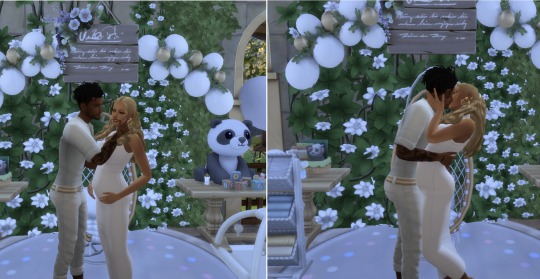
submitted by milfietea
SPOTTED: San Myshuno’s favorite couple to hate just released photos from their “secret” baby shower. Sources say she invited all of her little simfluencer friends, including former child actor now coke-whore, Angel Cox, and Simstagram’s favorite drugged-up trust fund baby, Reese Walker. So let me get this straight: You can invite your little drug-addicted besties, but not that broke baby daddy of yours, Camden Whitmore. Oops… did I let that slip? Sorry, I forgot we were still pretending that boyfriend of yours is the baby’s father. But I’m sure everyone would have figured it out sooner or later once that baby came out a few shades too light.
#submission#model simtizen#modelsimtizen#scandal sim#scandalsim#gossip girl#gossipgirl#solitasims#solita sims#thesims#the sims#thesims4#the sims 4#sims#sims4#sims 4#simblr#ts4#simscommunity
37 notes
·
View notes
Text
I’ve said this before but just to expand what I was saying earlier regarding Zatanna’s not necessarily being “de-aged” to be with Dick Grayson in YJ. In comics, Zatanna was moreover aged up to be closer to Batman.
Dependening on the stories, Zee starts off her heroism at 18-21. Sometimes she joins the JL after years of searching for her father or around the same time.
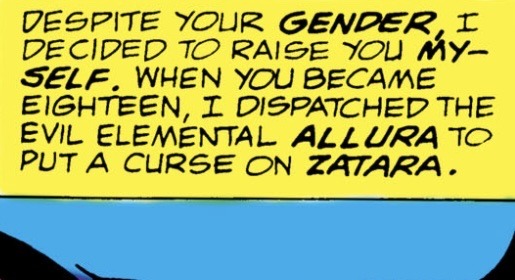
[Secret Origins v2 #27 - Recounted through Dr. Mist, who reveals being the mastermind behind her father & her upheavals in life by force via Felix Faust. In the story, he does realize how fucking creepy and patronizing his actions were.]
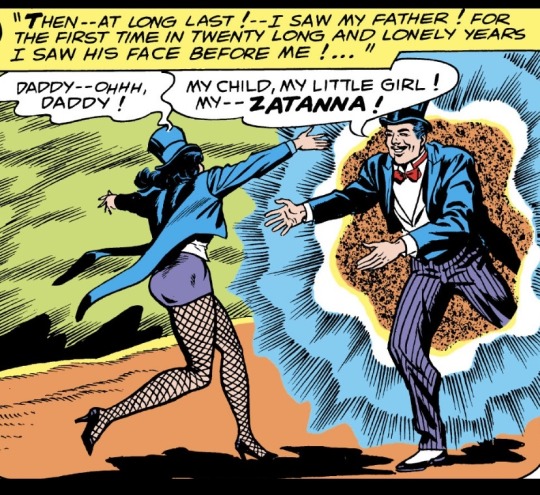
[ Justice League of America #51 - This story places her at 20 years old when she finally reunited with her father and joins the JL a short time later. But this story makes it seem like she was an orphan rather than raised by her father for a chunk of her childhood.]
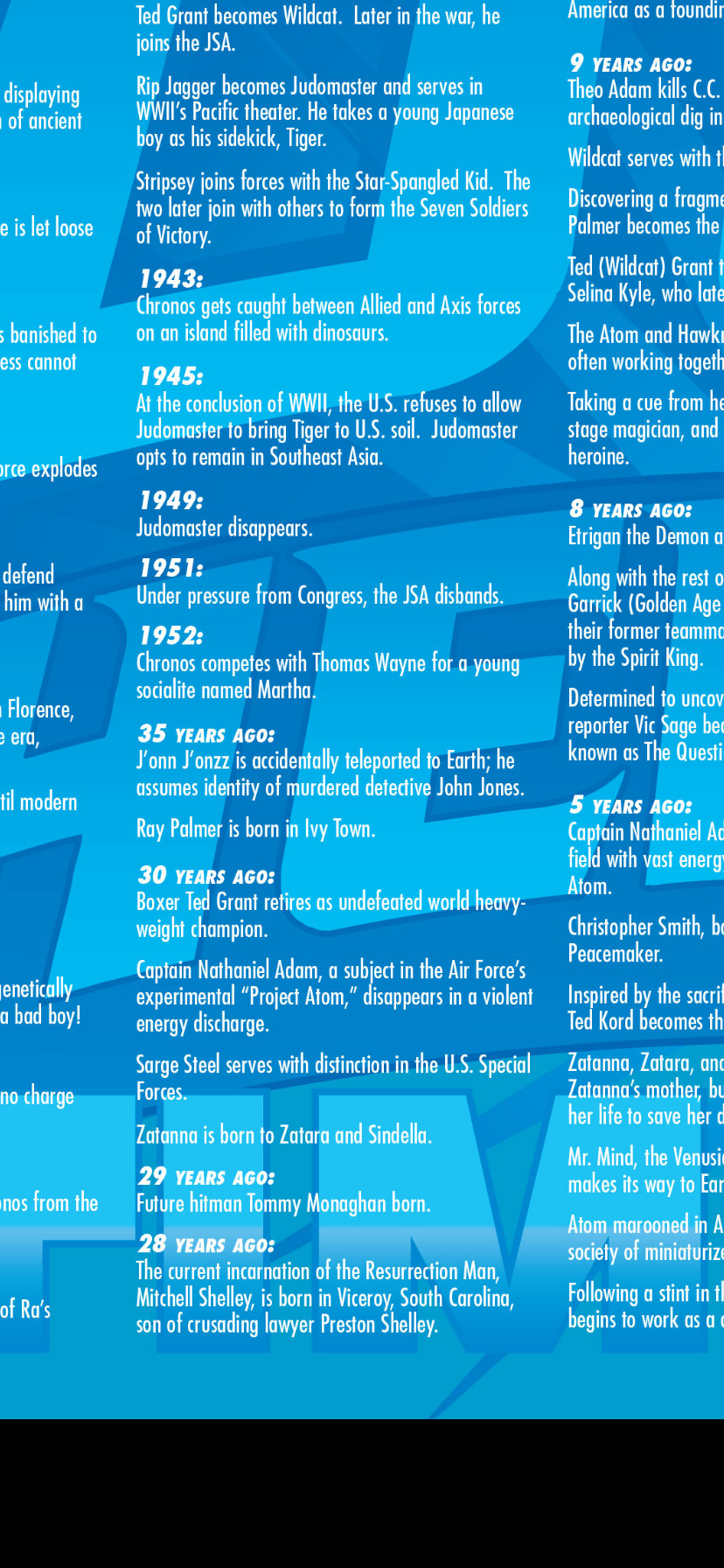
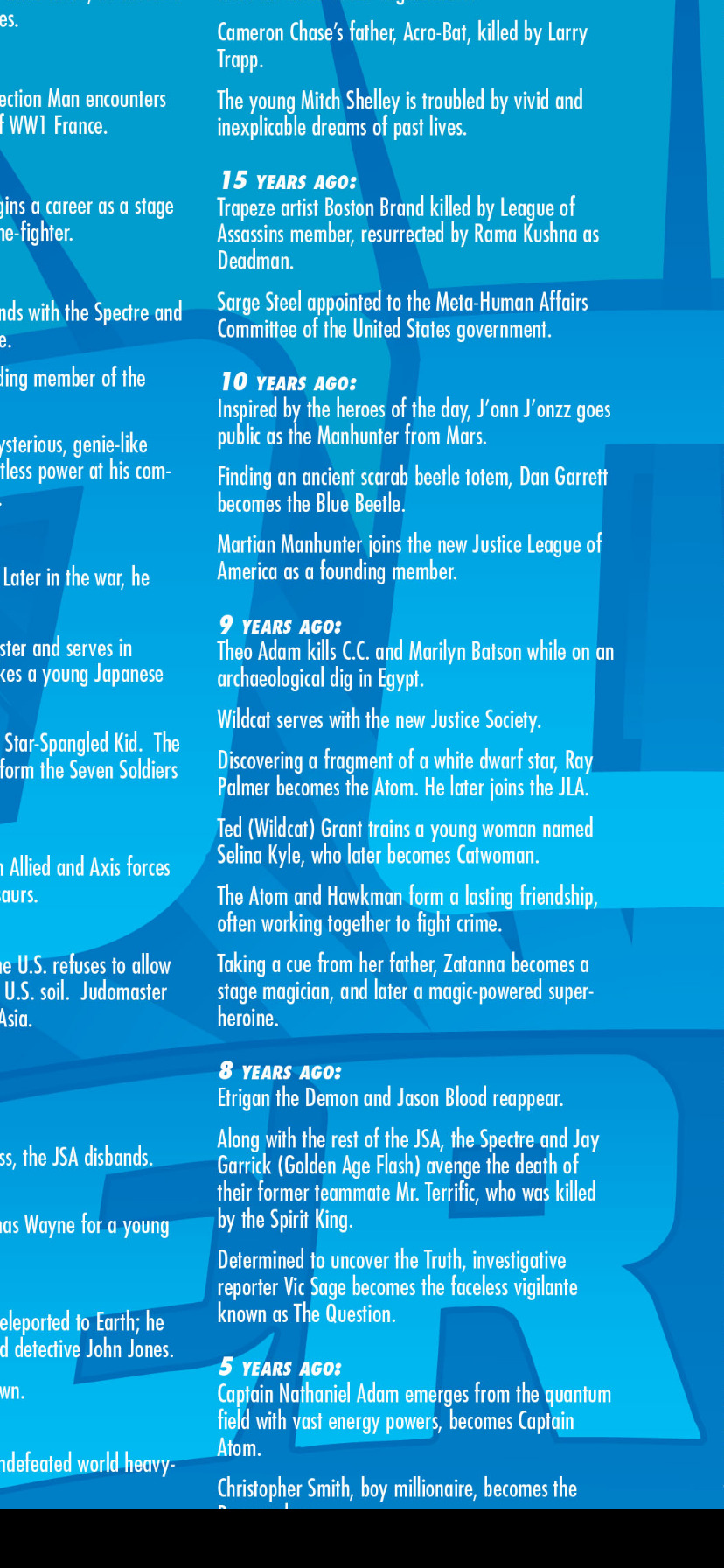
[ DCU Heroes Secret Files & Origins #1 - This timeline would imply that she joined the JL first at 21.]
All these sources came prior to her history with Batman, which would naturally move her timeline to make her adjacent with him prior.
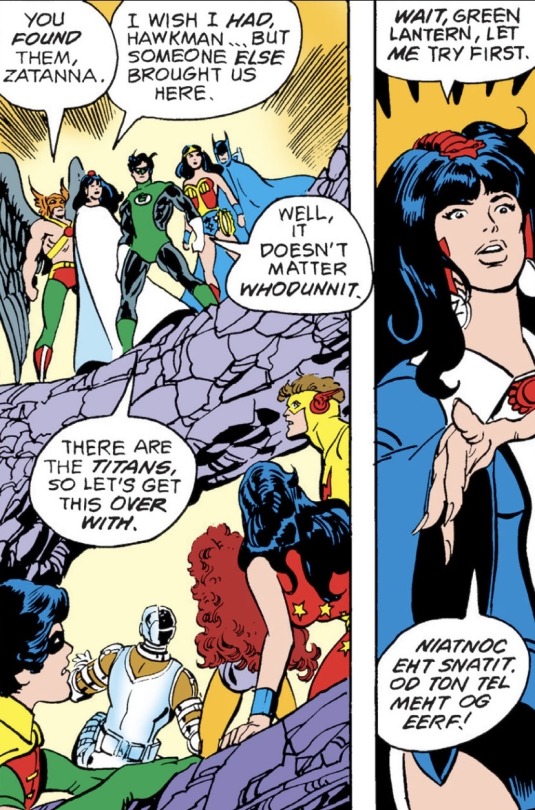
[Compared that to Dick, whom she met alongside the Titans in Tales of the Teen Titans #4 in the 1980s. By then, Dick was already college bound with high school graduation [Batman #217]or a teenager depending on your context, placing him roughly 16-18 give or take. This same series in which the picture above has him retire the Robin name in #39, which modern stories typically have that done at 18 years old.]
I think it’s very important to note that Zatanna’s character has changed overtime and that there’s no definite “Justice League generation” vs other generations of heroes. There’s not this neat little box where every DCU character conveniently fits in.
The Titans might fit in the “heroes in their 20s” box and the Teen Titans feature heroes younger than 18 but even then, some TT reached 18+ [Red Devil] and there’s been a plethora of heroes in their 20s in the JL [Kyle Rayner, Khalid Nassour, Ronnie Raymond/Jason Rusch]. Just like the JSA has younger members & successors who join, the JL features membership of varying ages.
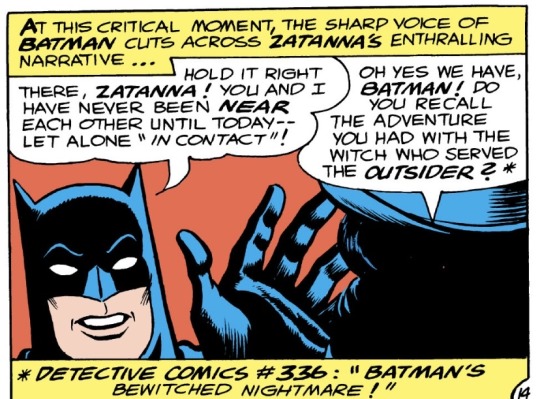
[I literally forgot the source of this.]
I understand the basis makes it seem like Zatanna is infantalized but that’s not necessarily true. The character wasn’t always Bruce’s childhood friend and at one point, only met significantly in the JL to Batman’s own recollection. & one other time where she was disguised as a witch unknown to Bruce himself long before the retcon that made them childhood friends came to be.
It’s also hard to say “Zatanna has to be around this age bc she hangs out with so-and-so” because characters like Superman, Batman, and Wonder Woman has had their histories altered in many ways. Barry Allen’s age has never been stated so using his interest in her as an age gauge is iffy and honestly, in real life, people have relationships, flirtations, and friendships with people older and younger than them. Part of adulthood is meshing with people & it’s not always convenient that you’ll be friends with people your own age. Interpersonal relationships are also multi-faceted and complex.
I also think it’s sets a bad precedent to not examine the character’s history and go off of the “idea” of where characters are instead of their history. Various DC characters already get this:
Billy Batson is always like 10 or 12 when people think of him but like he’s been 15 & 16 too. His relationship with Courtney Whitmore for example happened when he’s in high school himself. He is also chronologically older than Jon Kent regardless of space bullshit.
Raven & Beast Boy’s character get de-aged to the point they’ve been in Dick, Tim, and Damian’s version of the Teen Titans in media & comics.
Jaime Reyes remained eternally in high school until recently and it took a movie to budge him from that.
Stephanie Brown & Cassandra Caín are out here having Damian be closer to them in age because editorials, writers, and fanon completely forget both characters have been 18 far longer than anybody thinks.
Khalid Nassour debuted in 2015 already 23 years old & a year older than DICK GRAYSON IN THE SAME YEARS. Nowadays, he’s drawn as a teen/college age guy and his timeline either implies he’s in his 30s now or in 2023, all his 100+ appearances took place in ONE YEAR so therefore, everyone he interacted with also progressed one year overtime?
Long story short, it’s really important in my opinion to consider a character’s history and not just go off of whose their friend is, what you think their idealized version is like, and do not use the characters whose timeline DC & Didio has outright played Russian Roulette with accommodate their idealized version of the characters as a placeholder.
11 notes
·
View notes
Text
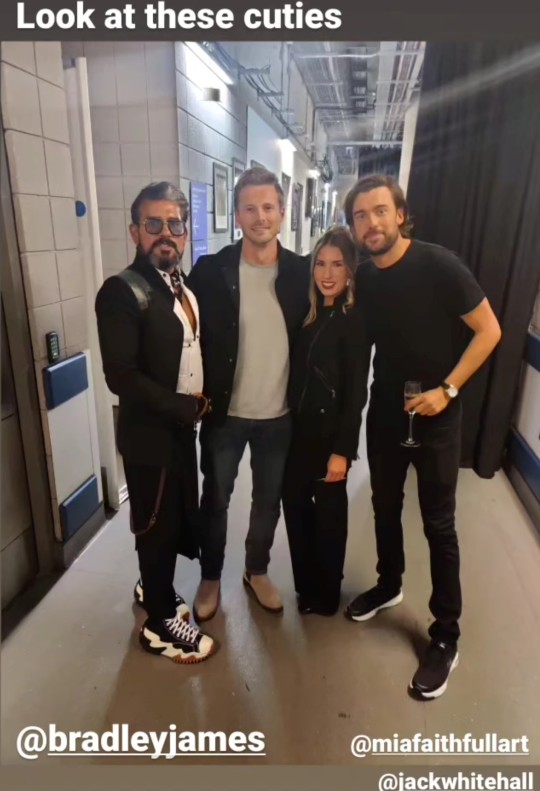
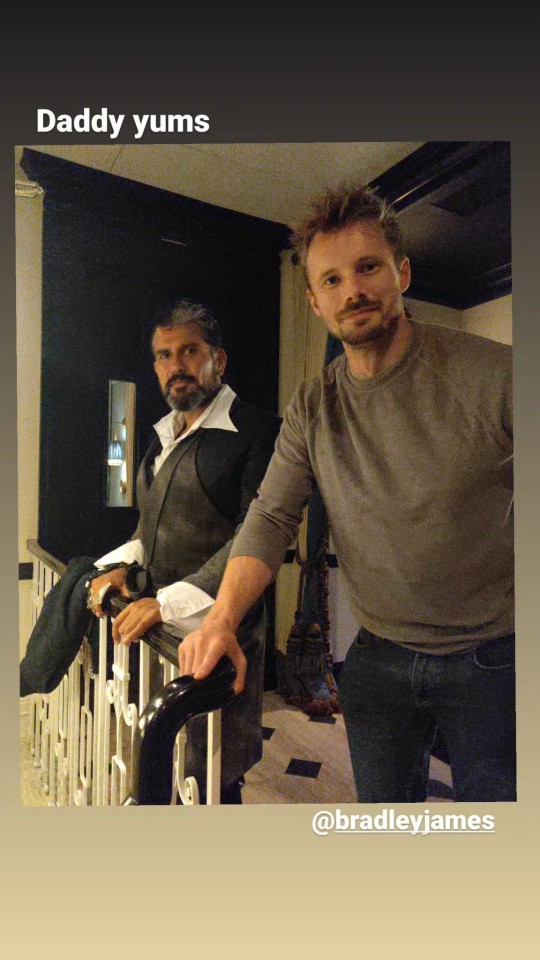
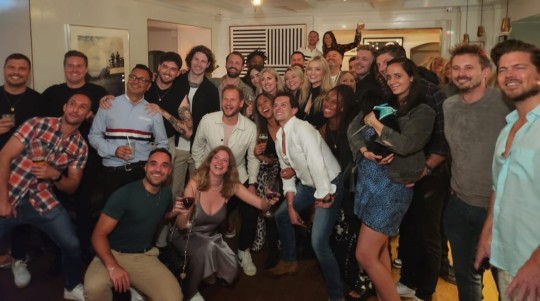
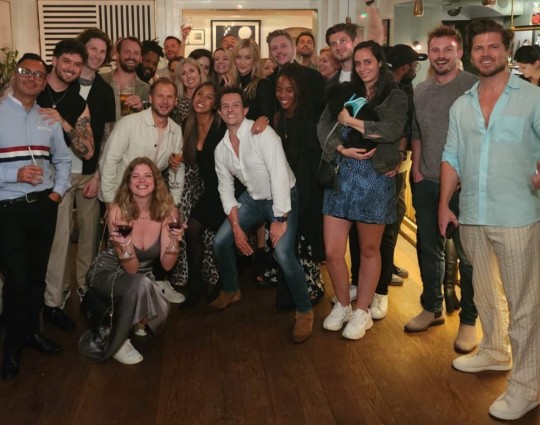
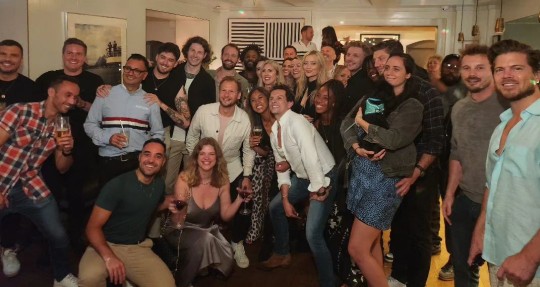
New pics of Bradley spending quality time in London on July 14th (with beard) and July 16th at the O2 arena
sources: Azim Majid Valerie van der Graaf Laura Whitmore LJ
#bradley james#mia faithfull#azim majid#merlin#merthur#arthur pendragon#damien thorn#felix sparks#the liberator#once and future king
32 notes
·
View notes
Text
New York City seemed to be a world all its own : sights, smells and sounds that were all perfectly foreign, all things that she would have liked nothing more than to spend hours exploring. With luck, there would be time for that later. For now, Kidagakesh found herself on a mission. Strange sightings reported on various news sources that had garnered the attention of Whitmore, a particular rumor that he insisted would catch her interest.
The first sighting of a Gorlois she had been made aware of since Paris, seventy years prior.
It had only taken a bit of digging from the team to find a name that would hopefully provide them with more answers. Tucking the crystal at her throat beneath her sweater, Kida pushed open the door to the police station, scanning the room briefly before spotting the woman she was searching for.

"Detective... Maza? I am hoping we could speak, if you have time. I have questions I believe that only you are able to answer."
@stardustedstories for ELISA MAZA || moved from the old blog before you replied
#❪ ⠀ ✦ ⠀ ─── ⠀ stardustedstories / elisa maza ⠀﹕ ⠀a good detective trusts no one. ⠀ ❫#❪ ⠀ ✦ ⠀ ─── ⠀ kidagakash nedakh / ic ⠀﹕ ⠀let us share our light with the world! ⠀ ❫#/ just moved this for tracking reasons uwu#/ since you hadn't replied yet it was easy just to scoot it
7 notes
·
View notes
Text
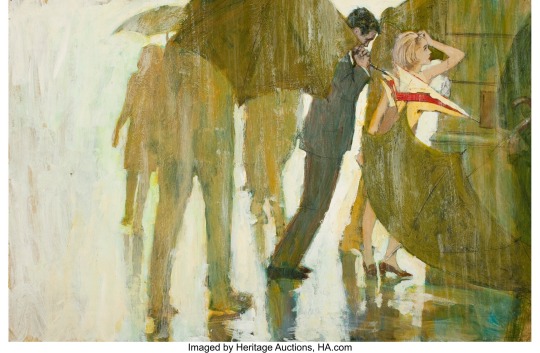
Coby Whitmore (1913-1988) The Rain Shower
Source
8 notes
·
View notes
Text
Stargirl: Pat! I never ask you for anything! When did i ever ask you for anything?
Stripes: yesterday. You said ‘Pat! Please take me to see chips and ice cream! Its a broadway smash!’
#source: adventure time#justice league#dc comics#dcau#justice league unlimited#jlu#dc#incorrect quotes#incorrect dc quotes#incorrect dc comics#stargirl#courtney whitmore#stripes#pat dugan
32 notes
·
View notes
Text
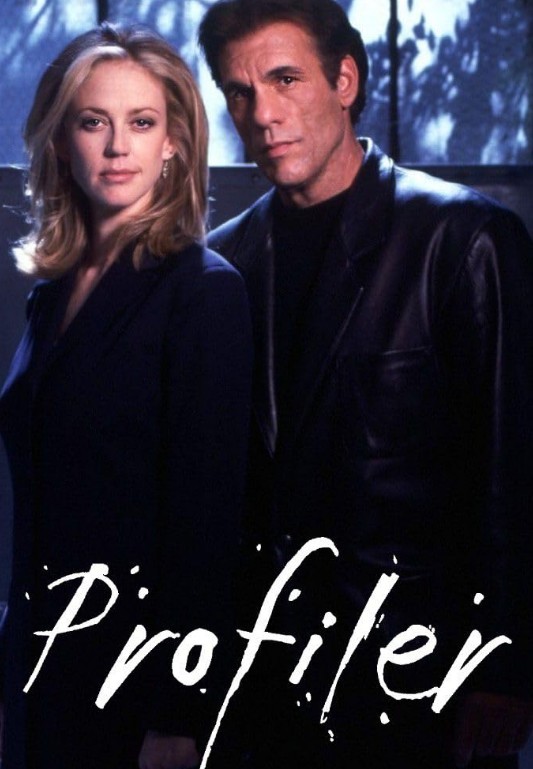
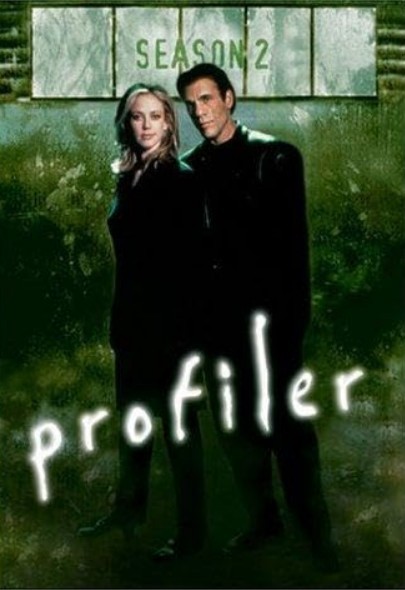


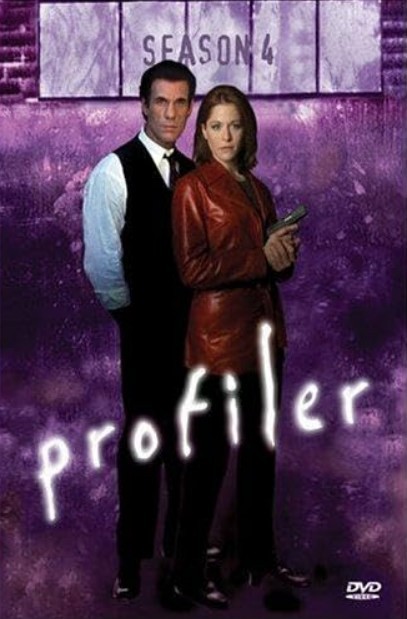
La série Profiler (1996) qui a 3 épisodes-Incursions (Crossover) avec la série Le Caméléon (V.O. : The Pretender) et était diffusée en France le même soir sur M6, et aux USA sur NBC.
Statut : terminée
Nb Saisons : 4
Nb Episodes : 64
Réalisation :
- Ian Toynton (6 épisodes)
- James Whitmore Jr (2 épisodes)
- Chuck Bowman (1 épisode),
...

Distribution principale :
- Ally Walker, qui recroisera Leland Orser dans l'Ep. 12.13 de la série Urgences;
- Robert Davi, qui avait déjà croisé Richard Marcus dans l'Ep. 1.07 de la série Hôpital St. Elsewhere (1982) et qui croisera Jason Brooks dans Alerte Astéroïde (2014);
- Julian McMahon, vu dans la série Charmed;
- Roma Maffia, vue dans la série Pretty Little Liars;
- Jamie Luner, de la série Melrose Place;
...
Distribution secondaire :
- A Martinez, vu dans les feuilletons Des jours et des Vies et Hôpital Central;
- Gregory Itzin, vu dans l'Ep. de la série 1.15 de la série Le Caméléon (V.O. : The Pretender), puis dans la série 24 heures chrono et Mentalist ;
...
De nombreux lieux de tournage et de participations exceptionnelles sont similaires avec la série Le Caméléon (V.O. : The Pretender) .
Ep. 3.19
Ep. 4.10 :
> avec Max Martini, qui croisera Jeffrey Donovan dans l'Ep. 2.07 de la série Burn Notice; et qui participe également à l'incursion 4.10 de la série Le Caméléon (V.O. : The Pretender)
En 2020, Claire Cornillon, Maîtresse de Conférence à l’Université de Nïmes, a donné une conférence virtuelle “Héros et héroïnes de la Trilogie du samedi “ au GeekFest avec cette série au sommaire.
source : imdb
#profiler#1996#le cameleon#the pretender#robert davi#michael t weiss#julian mcmahon#Gregory Itzin#Ally Walker#Roma Maffia#a martinez#Ian Toynton#James Whitmore Jr#Chuck Bowman#jamie luner
5 notes
·
View notes
Text
Courtney, nudging Yolanda: Why are you always falling asleep on me? Am I that boring?
Yolanda, half asleep: You make me feel safe.
Courtney, blinking back tears: Oh.
#stargirl#incorrect stargirl#incorrect quotes#courtney whitmore#yolanda montez#starcat#source: unknown
32 notes
·
View notes
Text
Actor and football star became BFFs over shared outfits on Twitter!
It started when Philadelphia Eagles center, Jason Kelce wore a pair of wraparound sunglasses to his podcast, prompting a fan to post a picture comparing him to Sean Astin as Doug Whitmore in 50 First Dates. Jason responded by asking where he could find a shirt like that.
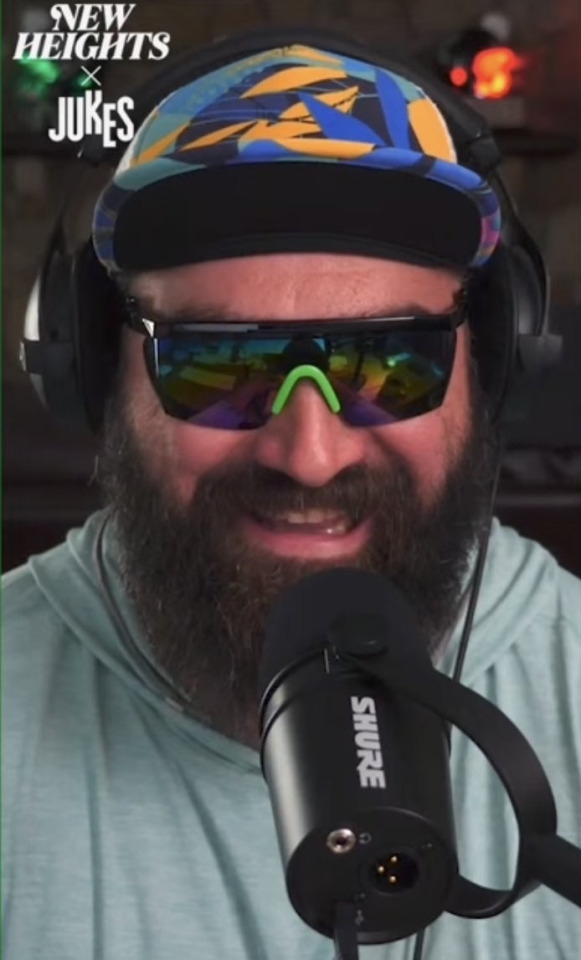
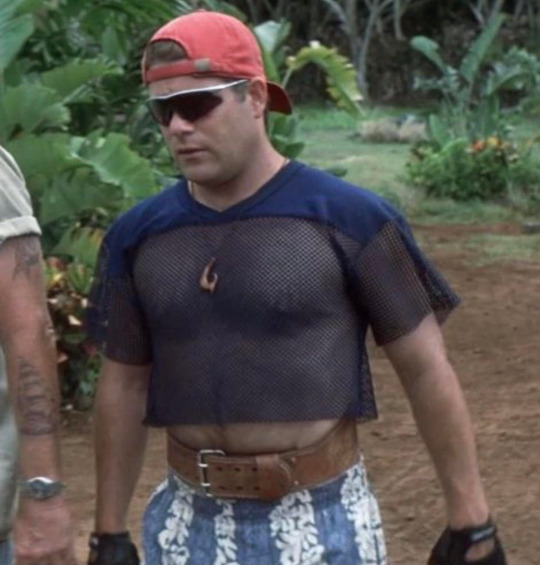
Apparently, he found a source, because he showed up for Sunday’s game against the Tennessee Titans cosplaying as Doug Whitmore. The NFL tweeted a Who Wore It Better challenge, leading to Sean and Jason showing their mutual admiration!
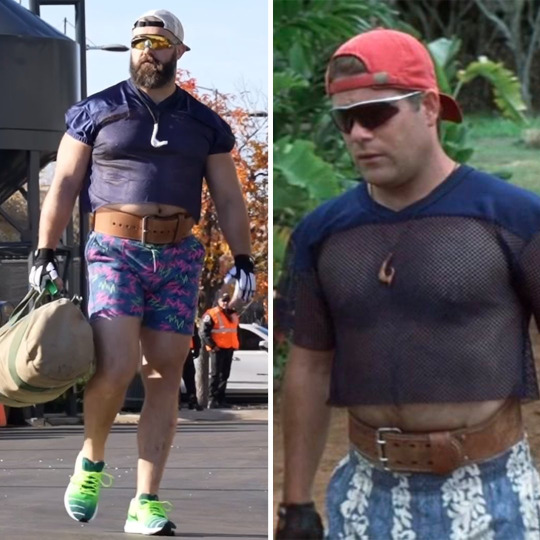
Read these two articles for details, and to see the relevant tweets!
https://www.inquirer.com/eagles/eagles-jason-kelce-outfit-titans-christmas-album-songs-20221205.html
https://fansided.com/2022/12/05/jason-kelce-sean-astin-twitter-50-first-dates/
#sean astin#jason kelce#50 first dates#Doug whitmore#philadelphia eagles#football#mesh shirts#bffs for life#nfl
43 notes
·
View notes
Text
A Moonlit Music
I have finished my entry for the 2022 Inklings Challenge (@inklings-challenge)!
Her uncle’s estate was abandoned, old (ancient, really), and it looked over the town from its hill like a watchtower. It looked a bit like one, too, with its gaping windows and crumbling brick walls and its sturdy heft.
It was a mess.
It was the last place Clarina wanted to go after a long day of classes, but living there was better than sharing a room on campus with other students, and only the West wing was dangerous, since it was in the middle of renovations. The rest of the house hadn’t seen the light of day in years but it was safe enough. The idea of this place having separate wings was difficult to wrap her head around; her uncle had been richer than anyone in her family had imagined.
When Clarina had inexplicably been named as the heir to Uncle Robin’s estate a year ago, no one had been envious; it wasn’t worth much, and, as her cousin Paul said, it would take more money to fix than it would ever make from selling.
Staring now at the new bill now donning the top of the pile on the kitchen table (windows, $2000, pronto), Clarina had to begrudgingly agree. It had been romantic enough to dream of renovating this place over a year ago, but there had been setback after setback, and she was barely any further along now than she had been then.
She turned resolutely away to the cabinet that held her mugs. A cup of coffee, then her end-of-semester composition project. School, as her mother had been firm on, was her priority now, as worthless as a degree in music composition was to a lawyer. It was not the sinking feeling Clarina felt every time she saw the half-finished plumbing or received yet another email from Lucas Whitmore offering to buy the mansion at half price.
And, she told herself firmly, it was not the violin music swirling outside the window with the first chill of autumn. Over the weeks, it had become a dear friend, and she wasn’t about to go investigate it. She sat and let it provide haunting background music to her coffee.
The violin didn’t pause as Clarina rinsed her mug out and headed to the piano in the living room. She flicked the lights on; a warm, gentle glow flooded the room, leaving the rest of the lower floor in shadow. The room felt homely, even if the silence echoing around her was lonely. The violin pushed into the room, and it sounded lonely, too.
She sat at her piano and stared down the blank sheet music–her nightly routine. The end of the semester was approaching, and she had…nothing. One page of dubious quality, and no ideas for a multi-movement symphony, which meant she’d fail her semester project and have nothing to present the orchestra with next year.
She flipped to her previous page and played it through; a short development, a couple of variations, then…what next?
The violin music curled around her and tugged her attention from the pages. How could she hear it through the closed window? Through layers of sturdy stone wall? Where was it coming from?
The questions surprised her—or rather, she was surprised that they were only now coming to her. She stood from the piano bench and went to the window to peer across the hills of the estate; as close as she could figure, the music was coming from the east. Her eyes landed on the forest at the very edge of the estate and a warm rightness asserted itself in her chest. The music’s source was that forest. She was sure of it as she had never been sure of anything.
The violin grew louder, or maybe her perception of it grew clearer as she stared through the darkness at the forest. A chill wind whipped up still-green leaves into flurries and brought the scent of mountains with it. Clarina pushed away from the window. Mountains? There were no mountains here, this side of Virginia.
She analyzed the music instinctively. It held the lyricism of the Romantic Era alongside the intimate articulate logic of Baroque. But it wasn’t either of those things. It was something else, something apart.
Clarina stepped to the door. That warmth filled her again. She let herself reach for the beige coat hanging on the rack. She let herself shove on her tennis shoes. She let herself open the door and step out into the dark, crisp autumn night.
She refused to let herself consider what she was doing.
The autumn air, though, refused to be ignored. It slipped up the wrists of her coat sleeves and buffeted her cheeks and tangled her hair, and quite nearly jerked her out of whatever daze she’d found herself in. She kept going, over the patchily paved driveway and over the fields and straight into the forest, and did not think about any of it.
The music struck her soul once she entered the forest; enclosed in its shadows, the disembodied violin called to her, teasingly close. Clarina wandered, following the voice through the trees and wading through moonlight puddled upon freshly-fallen leaves. Her heart raced from nerves and exertion. She was about to find the source of the music any moment now, she knew it.
She finally had to stop, sweat pricking her temples and soaking her shirt from exertion even in the chilly air. The moon was almost directly above her now, but she didn’t know how long she’d been wandering in this forest–she knew only that she had left the path long behind her and that she was completely lost. The practical side of her brain was frantically working out her way home, but this newfound sense that captured her just…didn’t care. The violin was only yards in front of her now, directly before her. She could hear a person stepping lightly through the undergrowth.
Thoughts of danger didn’t occur to her; there was only that sense of unprecedented contentment, the unarguable sense that this was right. She had felt this way once only–when she had composed a piece with perfect clarity.
Clarina peered through the trees in front of her. In the shadows, the moonlight flickered and shifted as clouds and leaves obscured and then revealed it again, and through it all a clearing took shape. Barely ten feet in any direction, it was less a glade than a strip of cleared grass, lit by pillars of moonlight filtering down through the branches.
The violin was still singing, high and melancholy and pure, and it was there, right in front of her–
A pale, bare foot stepped out of the shadows into one of the pillars of light, and Clarina watched as the form of a man made its way into the glade, emerging from the trees on the opposite side.
The first thing Clarina noticed was the look of bright, contagious joy in his face, and the next was that the contentment glowing warm in her chest had turned into a steady pounding in time with her heart, in time with the music spinning from the violin strings. There was one wild moment of abandonment, of yearning, a longing that Clarina knew, from that moment on, would always remain inside her, hidden away to rear its head at inopportune moments.
It was not unlike the moment in a piece of music in which the melody reached the moment of catharsis and then dissolved unresolved.
The man danced through the tiny glade, and he had to have been cold spinning barefoot and dressed in a simple linen shirt and trousers, but the sharp clear joy on his face never dimmed. He wasn’t smiling with it so much as it was shining with a brilliance from his face and infusing his grey clothes with silver.
He was entrancing. Clarina couldn’t bring herself to break the spell he was weaving–and if that phrasing wasn’t proof that something was taking effect, she didn’t know what was–so she settled against a tree and watched him dance. He flitted this way and that, in and out of moonlit pillars and through the shadows, feet carrying him across the glade and over twigs and branches and grass and–
–closer and closer to the other end of the glade, further away from Clarina. Clarina shot up, almost sick at the thought of this man going out of sight. Impulsively, she stepped out of the undergrowth. “Wait!”
The bow screeched against the strings. The violinist, without even a glance in her direction, took off into the forest.
“Wait!” Clarina yelled again. She plunged into the shadows after him, and the lack of moonlight immediately struck her with blindness. She squinted against the dark, but she couldn’t see any sign of the man. There was no violin to lead her. There was a glimpse of a silver cloak, and she followed it, but soon realized it had just been a flutter of moonlight in the shadow of a tree.
She came to a stop, straining her ears for a sound above the harsh panting of her breath. There was nothing–no sound of feet against a forest floor, no rustle of bushes and branches being shoved out of the way, and certainly no sweet violin. Clarina didn’t know where she was; she’d strayed from the path long ago, though she couldn’t remember doing so. There was no violin to guide her back to the house and her bed.
Clarina barely paid attention to where she was going, and only lifted her eyes from the ground once, when a sharp bird cry echoed close by. Her eyes met the dark ones of a large hawk, sitting in a tree and peering down at her with a particularly arrogant tilt to his head. Clarina stared back, not knowing why she did so herself. I could write a tone poem about this. The thought drifted through her mind and then fled again. The hawk cried–at her?-- and took off.
Not knowing why, Clarina followed it. Where else did she have to go?
It was nearly dawn by the time she found herself climbing the hill and stumbling across the path. She laid eyes on it, and felt nothing. Something numb had taken hold.
She walked back to the house. She fell into bed fully clothed. She still smelt of leaves and moonlight. The sun was rising when she finally drifted off.
Her dreams were filled with a fleeting grey-and-silver shape, and a joyous smile, and that curious yearning.
The fall of dusk brought Clarina to the forest the next day. This time, not stupid enough to rely on the same luck to bring her back to the path tonight, she was prepared; she had a flashlight, and a pocketknife, and her cellphone. She even had food, as though this man was some wild animal she wanted to tame.
There was only the little matter of her signal dropping as soon as she stepped foot in the trees. The bars vanished, one by one. Clarina stuffed the phone into her back pocket and proceeded a little more tentatively. There was no way to find the violinist again if she stayed on the path, of that she was certain. Clarina started east–at least, what she thought was east–and slashed the tree on her right.
She had a plan. Good. As long as she had her pocketknife and trees to cut, she wouldn’t get lost.
The forest was in the early grip of autumn, and though most of the leaves were a vibrant red gold in the setting sun, there were still a few green ones that clung to their branches. Golden light filtered in through spindly branches, sharp and pillared between the trees and giving the whole forest an unreal atmosphere.
Like Faeryland, she found herself thinking, and surprised herself with the sudden memory. How long had it been since she’d thought of those old stories, of elves and men spiriting fair ladies away and women holding onto their shape-changing beloveds?
The forest was quiet, and no animals scurried across the trees or rustled within the leaves–besides that hawk from last night, Clarina had seen nothing. She pulled her coat closer around her. Did anyone but herself live here?
The violin answered her, its cheery voice rising high and sudden over the trees, drifting along as though it was a piece of dust gliding along the sunbeams. Clarina bit back a curse—he was early!—and hurried along. The music led her until the sun started to fade, and just as the light vanished from the forest completely she stumbled upon the same clearing. The violinist danced, and Clarina hovered hesitantly on the edge of the clearing. What if he was startled away again?
She started to back up into the undergrowth, but it was too late; as he turned the violinist’s eyes locked on hers. He faltered, but it wasn’t the same fumbling startlement that had led him away from her the night before. His breath came fast, and the bow shook in his hand, now fallen to his side.
Afterward, Clarina was never sure of how long they stood there, and all the details faded into the same dreamy haze that cloaked this forest. Moonlight draped them as the last rays of sunlight faded. Clarina stared into the stranger’s eyes, and she didn’t want to look away. Something about meeting him felt right, and she didn’t quite understand how she (of all people) could ever feel this comfortable in the presence of another person. Maybe he felt the same way, because he didn’t take a step, or raise his bow to the strings, or move his gaze from hers, for a long, long time.
Clarina was the first to speak, and had to start again, because her voice was hoarse. “What were you playing?”
The man blinked, the dazed look in his eyes fading. “Sember’s 10th Line.”
Clarina’s face must have revealed her confusion; his eyes brightened, and a smile touched his lips. He raised his violin and brought the bow to the strings, and began playing again. He didn’t dance this time, letting the sound spin out pure over the forest. It was a light, simple song, like a folk song, not quite the same eerie melody she had heard the night before.
The piece faded like mist, dissipating in the moonlight. Clarina found she stood a little closer to him; nothing felt more natural than standing here beside him and watching him play. “I play, too,” she told him, because she felt something must be said now that they had started. “Piano.”
His smile grew. “You shall have to play it for me sometime. That is the one with the board of keys? I don’t know much of the language of this world.”
She nodded, her brain skimming and dispensing with that last sentence. It didn’t make sense to her, but he made sense to her. “I wish I could bring it with me.”
He didn’t respond directly, but started playing again, with a quick, “This is Sember’s 1st Harmony.” This time, the song was long, and brooding, and dark, and Clarina settled herself against the roots of the tree to listen. The man was beautiful–dark eyes glinted with moonlight, and pale hair floated around his shoulders, and nimble, long-fingered hands flitted about the fingerboard of the violin and grasped the bow with a beautiful curve. He wore the same grey clothes and silver cloak he had worn last night, and there were no shoes on his feet.
The song came to an end with a long, drawn-out diminuendo, and Clarina was struck with a question that suddenly seemed so obvious and important that she couldn’t imagine how she hadn’t asked it to begin with. “What’s your name?”
The man came to lean against a tree trunk a few feet away. “Lyev.”
“I’m Clarina,” she offered.
He smiled again. It was a gentle, toothy thing, and, like everything else about this meeting, it was oddly right to feel it turned on her. Everything about this felt right. She observed him the way she would observe a composition written by one of the masters: scientifically, logically. “You aren’t…human, are you?” She heard all the scientists in the world laughing at her as the words came out of her mouth. Out of everything she could have been drawn to, logic had led her to music; the interplay between math and emotion had pulled at her.
Lyev met her eyes, his own questioning, dark, and lit with light. He shook his head. “Not human. Not like your humans. I’m…you may not understand me, or believe me, but I’m from another world.”
Her breath caught, even though some part of her had been prepared for this. Still… “Show me,” she demanded. The man–Lyev–hesitated, and a niggling sense of suspicion nagged at her. She crossed her arms, some of her practicality flowing back. Making people do things was her job as a composer, and this was familiar ground. “Well? You got here somehow, and you vanished last night. I want to know how.”
Lyev shook his head, sending pale hair into his eyes in an unfairly becoming way that she was fairly certain was unintentional. “I…don’t think that’s a good idea,” he stammered. “You see, I’m not–”
Clarina raised her chin. “Not what? From another world?”
Lyev stared at her, then with a resigned sort of shrug he lifted his bow and played again. This time it was different, less loose and more intentional. And as he played, a crackling flame appeared in the air before her, stark gold against the darkness of the night. The silver moonlight paled against its brightness. It wound and twirled in on itself, and grew bigger and brighter as the music swelled, until it seemed it was about to devour the clearing.
With a gasp, Lyev yanked his bow away. The music ceased with an indelicate shriek. The golden spiral faded. “That’s all I dare do. I can’t go back right now. I don’t want to go back.” His eyes met hers again, something soft and less shadowed entering his gaze. “Not after meeting you.”
Clarina felt small and unimportant in the wake of that swirling light. “I don’t want you to go, either,”she breathed. Then, after a hesitation, “Could I follow you there sometime?”
“No,” he said. It wasn’t sharp or harsh, but matter-of-fact. “You wouldn’t like it there. It isn’t for…you,” and the way he said that word, ‘you’, seemed to encompass more than just Clarina herself.
She resolved not to discuss it now. She sat back down and settled her back against the wide comforting trunk of an oak tree. “Could you play for me again? And dance?”
He smiled again, that shadow fled from his eyes. “Of course.”
So Lyev played and danced for her, and Clarina learned that he liked attention and praise, and was well-deserving of both, with his skill and his fair features. She left far before dawn, but she returned the next night, and so did he, and this time they ventured from the clearing–what she was already beginning to think of as ‘their clearing’--to explore the forest. Lyev knew it better than she, and there was something in the way the light splashed upon the trees that reminded Clarina of him. Lyev walked on before her silently, taking in the forest, but often he stepped lightly just beside her, playing light airs on his violin. When she asked about those, he simply smiled and laughed and said he’d made them up.
Lyev smiled and laughed a lot, and if he’d been anyone else perhaps Clarina wouldn’t have caught on to the tense lines in his forehead, but she noticed them almost immediately.
She stayed away from conversation of his world, and if they talked at all, it was about Clarina herself–her compositions, the music of her world, her life as a student; Lyev seemed fascinated by the concept of symphonies, and entire schools dedicated to music. But a week into their forest wanderings, Clarina mustered up the courage to ask: “But why here?”
He threw her a bewildered look.
“I mean,” she tried again, “aren’t there more interesting places in your own world? Why do you choose to come here?”
Lyev played with leaves on a branch hanging overhead; they were turning steadily more golden as the autumn progressed. “Perhaps to you,” he said, “those places would be fascinating. I’ve heard an expression here–’the grass is greener’? That is a bit like what it is like. Your world is interesting to me because it’s different.”
Clarina took him in. There was definitely something there–in his posture, in his refusal to look her in the eye–that he wasn’t telling her. “You’re not a very good liar, Lyev,” she said. “What else is it?”
He fiddled with a leaf, rubbing it back and forth against his fingers. A nervous tic if Clarina had ever seen one. “I have enemies,” he finally said. “There are few places I can go safely in my own world. At least allow me one area I can explore at will.” And then he turned away and was light and carefree once more.
A few nights after that, struck by his interest in this world’s music, Clarina invited him to leave the forest and enter her home. She ignored the slight unease crowding her heart, reminding herself that in all of their nights in the forest Lyev had been utterly respectable.
The living room, with its worn velvet couches and its golden oak coffee tables, the grandeur of days long gone by, had never seemed comfortable to Clarina. It had always been cold and remote, as though it judged anyone who dared enter it.
She wasn’t sure what to think when Lyev stepped in and instantly became part of the room. It didn’t judge him the way it judged her; he sat on the green velvet couch cushion and automatically held the bearing of a noble lord. Clarina’s face flushed with sudden self-consciousness and she turned away, ostensibly to bring a tea kettle in from the kitchen. When she returned, Lyev was stretched out on the couch, gazing around. “It’s not too different from the parish,” he said suddenly. “Where I grew up.”
Clarina focused on pouring them even cups of tea. “You grew up in a parish?” Did that have something to do with those enemies he’d mentioned?
“Yes.” There was that shadow again, a sudden darkness to his voice that Clarina didn’t ask about. “My father is a priest.”
Clarina handed him tea, then sat next to him–a bit closer than was polite, perhaps, but it felt natural, and he didn’t seem to mind. “That’s allowed in your world?”
He quirked an eyebrow. “Yes. Why wouldn’t it be?”
“Here, priests are pretty strict on not having children. Part of their code, I think. They’re an order. They have to take oaths and everything.”
He hummed thoughtfully. “That’s not the way it is where I’m from. Priests are…well, pretty much the same as everyone else.”
Clarina was curious, but she didn’t think she was quite ready yet to really face the fact that this man–beautiful and elegant and kind and idealistic–was in fact an escapee from another world. She changed the subject clumsily. “There’s a record player somewhere around here. I’ll pull it out.” She found it under a pile of papers and de-cased records in the room above, and took some time to wrap the loose records carefully in paper. Those in better condition she brought with her.
When she returned, Lyev was standing over the piano, playing a few notes with clumsy, unpracticed fingers. He turned as she closed the distance, and her breath hitched at the fondness that filled his face. No one had looked at her that way before. She set the pile of records on top of the piano and sat on the bench. The half-finished symphony stared up at her, as it always did, and she realized Lyev had been trying to play the first few bars.
He leaned against the piano, staring at the notation as though it was an entirely different language. “This isn’t how we write down music in my world,” he offered. He took a piece of spare paper and a pen from the mug on the piano and without prompting, he drew a long row from the top to the bottom of swirling emblems.
“It’s like the stars,” he said by way of explanation at Clarina’s bewilderment. Then, when that didn’t clear anything up, he tried again. “The music notation is taken from what we see in the stars–not images, like you do, but…music. Music is the source of everything in my world.”
Clarina stared down at the swirling calligraphy, trying to wrap her head around it the way she’d forced music theory into her skull. She could almost see it… “So your stars don’t make constellations, but…text? These aren’t notes, they’re music itself.”
Lyev tapped the paper restlessly. “Almost. It is notation, but…not as logical as you’re trying to make it. If music is the source of everything–All has been made by the great Source of Song—then it’s hopeless trying to capture that on paper. Our minds can’t understand everything going on within it, and we shouldn’t try to. This–” he gestured at the paper “--is just the best way. A little chaotic and unstructured, but that’s what music is.”
Clarina’s head was hurting. She took a sip of tea. “What did you just write, then?”
Lyev had brought his violin with him tonight, as usual, and picked it up. He proceeded to play a scale. Pentatonic? Double harmonic? It was none of those. It was nothing she was familiar with, except that she could tell a scale was what it was meant to be.
“If it’s as unstructured as you say,” Clarina found herself thinking out loud, “how did you learn music? Is there no theory behind it?”
“Theory is in the study of nature, the study of the sky, in knowing the Source.” It was as matter-of-fact as that. Clarina was struggling for something to say when Lyev’s eyes landed on the pile of records nearby. He rushed over to examine them. “And this is all music?”
“Here.” She picked up a record of Bernstein’s Chicago Symphony recording of Mendelssohn's violin sonatas and concertos. “I think you’ll like this one.”
The night went on, and Lyev spent the time absorbed in the recordings. He was even more amazed at the revelation that records had two sides. “We don’t have orch-orchestras,” he said, eyes gleaming with that strange light. Clarina was starting to realize it was excitement, shining bright like stars. “Not like these. At most, 4 musicians will play together, but none of our halls are large enough to accommodate…this.” Almost reverentially, he sat on the velvet couch and listened as the brass section provided counterpoint to the strings. The percussion hammered away in the distant background.
These living room symphonic sessions were few and far between. Lyev seemed to prefer the forest and its moonlit shadows to the warm gold glow of Clarina’s living room. Lyev had been insistent on learning the music of her world, so she gave him the scores for Grieg and Brahms and Bach, and explained music notation as concisely as she could before dawn. He promised to learn them as best he could. They met in the forest the next night, and true to his word, he could stumble through the notes. “It’s more logical than ours,” he said with a wince as she corrected another wrong note.
“Does your music allow for more improvisation?” she asked, and then had to ask again after realizing he wasn’t familiar with that word. She wondered, not for the first time, where he’d learned English.
He shook his head. “We don’t improvise. Only the priests can write music; it is only they who have the insight into the Source’s designs. Anything else is sacrilege.”
“Oh.” Tonight, they’d found a footbridge spanning a small creek, and Clarina leaned against the railing, mindful not to catch her sleeve on the splintering wood. She stared unseeingly at the stars, visible through a gap in the trees above. “So that’s why you like making up music here so much. Isn’t that still sacrilege, though?” She was a bit hesitant to ask the question, and regretted it when his face became shadowed again and that line of tension re-entered his brow.
He slid his hands over the railing, staring down at the sluggish water fighting its way through leaf-choked banks. “I hope not. I don’t believe the Source would be so cruel.”
Clarina took a breath. “Lyev,” she started, wiping sweaty hands over her sweater. “Tell me about your world.”
And he did, with a small smile; he told her about the mountains he’d spent so much of his life within, and the clouds that glowed faintly purple every night that the scientists were intent on researching if they could only find a way to get to them, and the dances women and girls gave at their weddings with their older brothers. There were capes of silver and seven-league boots and cities whose spires gleamed gold from afar. There were legends of stars coming down to earth and marrying fair women, and music taking the form of people and animals and guiding lost wanderers along forest paths to safety.
Clarina remembered the hawk in the forest the first night she had gone searching for Lyev, and shoved the thought aside resolutely. “It sounds beautiful. Why did you think I would hate it so much?”
He let his hand brush hers on the railing. “It is beautiful. And it is good, as we say the Source once said. But what is beautiful and good is not always safe.”
Clarina laughed. “If you think I don’t know that, you haven’t been introduced to cars. Or cats.”
It had been over a month since their first meeting; the wind was getting brisker, and the leaves were more brown and dry than red or gold, and the moonlight was cold and sharp on their faces in the clearing. They still spent most of their time playing music, Clarina on a small portable keyboard she lugged with her for this express purpose, Lyev on his violin.
This night started much like the others; they were starting the cadenza of Bach’s second concerto, and Clarina was marveling at his violin, and admiring the way it entwined with the sound of her keyboard, when Lyev’s face fell and his knuckles went white. “Clarina,” he said sharply, and she had only a moment to wonder what mistake she could have made in the score to warrant this when his hand found hers and a crackling golden spiral opened in the air. Lyev’s eyes went wide and he froze, hand tightening on Clarina’s. His feet seemed rooted in the ground. His violin was lax in one hand.
Clarina tugged at his hand. She didn’t know why that portal was opening, but she knew instinctively that she didn’t want to be caught by whatever was coming through, if Lyev was so terrified at the idea. She remembered that look of unease he’d had when she’d asked him that first night to open it. “
For all her tugging, he was still frozen the middle of the clearing, starkly clear in
A booted foot emerged from the portal, and Clarina, in a burst of adrenaline, shoved Lyev with all her strength. “Run!”
Lyev’s eyes, gleaming with something other than excitement now–with terror–met Clarina’s, and whatever the expression on her face was, it pushed him into movement. He stumbled after her. They darted into the shadowy trees around them and ran for what seemed like miles. Faintly, Clarina could hear steps–footsteps–following them, and realized in horror that human men were chasing them.
“Lyev!” Clarina hissed, almost inaudible above the howling wind and the crunch of leaves underfoot. The waning moon beamed a slight light into the darkness, but it only made it a little better. She only knew Lyev was next to her because she felt his hand against the small of her back and heard rasping panting. He muttered incoherently under his breath, a constant litany of unfamiliar words, and all she knew was that somehow those words were keeping their pursuers from finding them. She could see the men a few yards behind, searching the forest and not laying eyes on them.
Her mind whirled, but Lyev whispered until finally his voice died out and he sank down into the leaves to lean against the trunk of the tree behind him, face ashen and haggard. Clarina took her chance. “What–who were those things? Why were they after you?”
Lyev’s breathing slowed gradually. When he could talk again, his voice was quiet and completely drained. “They want me to find them something. The crown.” He fell silent for such a long time afterward that Clarina felt herself growing irritable.
“Lyev,” she said, in the tone of voice she used when she had to talk to one too many pompous musicians that thought they understood her composition better than she did, “I have just been chased through my own land, in my own forest, by people from your world. Explain everything.”
He did, glumly. “I am the descendent of Queen Rilane, deposed in a revolution one hundred years ago. Only her descendants have the power to find her crown, long lost somewhere in the depths of her ruined palace. There’s a sect of our people who want her descendants to claim that role again.”
“If you’re the queen’s descendant,” Clarina said, growing steadily more irritable, “then why don’t you find the blasted crown and start ruling, if they need one so badly?”
He laughed. “I can’t rule, Clarina. I can barely make a decision without panicking. The people certainly don’t deserve me as their king. And I’d have so many enemies after me—I saw what they did to my mother. She was the previous descendant. No, I want a quiet life in the parish.”
“It’s because you’re that descendant in the first place that you even have a quiet life in a parish. If you don’t do it, who will?”
He shrugged, but she didn’t miss the uneasy look that flickered in his eyes. “I don’t know. That’s their problem,” he said flippantly, but it was a little too forced. “And maybe we don’t need a ruler anyway. We’ve done fine without one for a century.”
Clarina opened her mouth to continue protesting but hesitated. Who was she to be speaking of far-off lands and kings and long-lost crowns? She turned to a different subject. “Was that magic that you were doing?”
Lyev fiddled with his hands, and she just barely saw him nod in the darkness. “We’ve had that power–a handout from the Queen, I suppose. She was pretty powerful, but it’s gotten diluted through the generations. I’m the least powerful magic-user there’s been,” he said, obviously trying to sound light-hearted about it, but failing. “I’m not the only one of her descendants to have existed in this decade; just the only one not to have the sense to die before they catch me.”
Logic was screaming, but Clarina had accepted it: a man who appeared in a forest at night and turned her forest gold and faded into a golden glow hovering in the air and played a violin with such emotion could not really be a man at all, not as she understood them. “If you’re the rightful king,” she mused, grateful for the darkness, “why are you afraid of these people?”
“They don’t want me to rule, Clarina. They want me to be a puppet, for them to put their decrees to and have me agree. They’ll establish themselves as the leaders, and where would my father and I be?”
Clarina had no answer, and she sat there beside him in the dark, thinking of the strange words he’d whispered and a land far from here, with kings and zealots.
When she had time in the day, Clarina sometimes ventured into the forest, not hoping to find Lyev, but hoping against hope that she could find something to tell her what was going on. Something that she could use to help him, now that she knew the truth. She had read fantasies when she was young, and a stack of stories that she’d retrieved from her childhood bedroom now spread through the living room alongside biographies of composers; she knew very well now the magic that forests held in the old folk stories.
By daylight, the forest didn’t look like a forest from this world at all. Gone were the solid oaks, grown up over hundreds of years, and patches of lichen and moss. Or, rather, it was all still there, but there was something inexplicably thin about it all, and when Clarina stared at it for too long it faded completely and showed what was really there: silver-barked trees and slender, reaching plants with leaves like feathers, and vibrant flowers that would never blossom here in the depths of autumn. The air smelled different, carrying the scent of mountain breezes, and there were no mountains anywhere nearby.
She preferred the forest at night, when the moonlight hid shapes and she could pretend that everything was exactly as it had always been. But in the daylight, she found herself staring the lichen into vanishing and thinking to herself, This is Lyev’s doing. She was sure he wasn’t doing it on purpose; she didn’t think he even realized what was happening. She wasn’t even certain it was a bad thing. Perhaps it was just a result of being a space where magic was used, where worlds crossed over so often.
They had met for three months and autumn was fading into winter, and the wind carried the brisk scent of snow and ice. In the forest, though, the air was sweet and the cloak of normality was rapidly dissipating. She no longer saw the oaks, the ivy, at all; the forest was all foreign plants, and foreign air, and a golden aura shining from every branch. It made the towering pile of bills, growing even as she paid them off one after another, seem as distant and far away as Lyev’s world had seemed only three months ago.
“Lyev,” she said one night, as she lay her head in his lap and let him stroke his hands through her hair, “what do you know about finances?”
His hands stilled for an instant, then resumed. “Not much,” he admitted. “Do you need help with finances?” He stuttered over the word, and she wondered if he even knew what it meant.
“Money, I mean,” she sighed, sitting up. “I’m having trouble with it.”
Lyev was staring at her uncomprehendingly, but he made a valiant effort to be encouraging. “What kind of trouble? I very much doubt I can help you with it from here, but…”
“The house is my uncle’s,” Clarina explained, and went into the whole story: the inheritance, the horrible renovations, the bills piling on the table, each one more extravagant than the last, the offers to buy, the unexplainable desire she felt to keep it. Lyev, as expected, couldn’t help, but he listened intently. The next night, he agreed to come to the house and, as she worked on her symphony, growing slightly longer each night, Lyev sorted through the financial statements. A half-hour later, he set his hands on the table and looked at her with a smile.
“I was right. I don’t know a thing about finances!”
But the next morning when she woke, she came into the kitchen to find a pile of silver coins on her kitchen table. It sold for just enough to pay off the most pressing bill.
The shadow in Lyev’s eyes was becoming more and more prominent as the weeks went by, as valiantly as he fought to keep it from her. Finally, on a cold, crisp night, as the moonlight beat down on them, Clarina put her keyboard aside and went slowly up to him–cautiously, tentatively. She put a hand on his bowing arm and grasped it into stillness. “Lyev,” she said, peering into his eyes, mournful music still echoing in the resultant silence, “what is wrong? I have heard Dirlon’s 9th Point hundreds of times, and it has never sounded this sad.”
He slipped away from her, and something broken peered at her from his eyes. Clarina set herself. “Tell me. What have you done? What is going on there?”
Lyev turned his face away, letting his hair obscure it. “You will not forgive me if I tell you. Clarina, please do not…” His voice trailed off into a choked gag. His face lifted up to the stars, which gleamed in the cloudless sky above them and reflected in his eyes. He murmured something in his language, the words flowing beautiful and guilt-ridden.
Lyev turned back to her. Her heart plummeted at the darkness in his eyes as he slowly, gently knelt at her feet. His face was contorted by agony and guilt. “Please, my sweet, please forgive me. This forest gets weaker the more I come…I knew this would happen. I was selfish, I wanted—you, and the music, and this world, and I knew this was going to happen and I should have stopped coming long ago. I was so selfish, Clarina.”
She buried her hands in his hair, vainly trying to comfort him. “What do you mean, Lyev? What’s going to happen? Just tell me!”
A sob emerged, and he leaned forward to press his face against her knees. “Oh, Clarina, I’m so sorry. They’re coming for you.”
She froze, her hands stilling upon his head. There was no question of whom he meant. She wanted to step back, get away from him, but Lyev’s arms were twined around her waist. His skin was cold against hers, and pale in the moonlight.
“Who’s coming, Lyev?” she asked, and her throat tore itself up, dry and hoarse as it was.
Lyev slumped, and the whisper he gave in response was so muffled by her jeans that she had to bend down to hear. “The royalists. They’ve found m–aahh!” His face contorted with agony and his words died out into a scream.
“Lyev!” Clarina knelt down to push his hair back from his face and meet his eyes. She was completely useless; Lyev showed no awareness that she was even there, still screaming. His eyes glowed silver.
Gold light flashed in the air behind him, and that gold, crackling fiery spiral appeared in the air. Lyev shrieked and clambered away, hands clawing at the leaf mold beneath them; he dropped his violin and the crack of breaking wood resounded in the silent clearing. Even in his terror, Lyev winced. “Forgive me, O Source of All,” he muttered. He had just enough presence of mind to grab Clarina’s hand and tug her away. She watched, trembling, as two figures stepped out of the golden split in the air.
The men that emerged looked nothing like Lyev; if Clarina had thought that his world was a realm of elves and fae, fair and beautiful, she was disappointed. These men were pasty and featureless, as though anything that threatened to be distinctive had been pushed back into their faces long before they had time to arrive. The only thing memorable about them were the vermilion cloaks slung across their shoulders and the sneers on their faces.
Their hulking bodies stepped forward, and Clarina noticed with a cold wash of horror that they had swords clipped to their belts. The tallest had dark eyes like Lyev, but that was where the similarities ended. He nudged his companion with an elbow. “Looks like we’ve found that distraction of his,’ he jeered in Clarina’s direction. “Pretty, too.” They stepped forward and Clarina gripped Lyev’s hand in hers, trembling all over.
Something about the situation broke through the haze of terror that had taken over Lyev, and he broke away from her grasp and rushed forward. “Stay away from h–aahh!” He had lunged for one of the men, but he stopped mid-movement as the taller man barked something in that language Lyev had spoken before, and he crumpled to the ground, his hands pressed to his forehead and muffling screams broken with agony. The man broke off, but the spell hung in the air, and Lyev’s screams echoed in the branches.
Clarina observed them–like always, can’t you do something? she thought to herself disgustedly–as the other man, the shorter one, took hold of the edges of the golden spiral, and it had never looked so much like crackling flames of fire as it did now, as he somehow held one of the spiraling edges between two fingers and cast it down to the ground.
And then smoke plumed from the ground–from the dried fallen leaves, which even in this faeryland of a forest were still in the last vestiges of autumn–and something dry and acrid stuffed Clarina’s nose and tongue, and the forest was burning.
And now it all made sense–this forest gets weaker the more I come. The men were laughing and dragging their captive along as they lumbered back to their exit, and Lyev wasn’t screaming anymore, and Clarina’s forest was burning.
Clarina scrambled blindly for something, a weapon, and her hand landed on the neck of Lyev’s fallen violin. It was cracked and useless, but it was something, and she found the bow a moment later half-buried in the leaves. She scrambled to her knees and played a few screeching, unpolished notes, throwing all her will into them, praying to anyone that was listening that something would happen, that somehow she could work the same magic these otherworlders had been able to, that the forest would help her, that something could help Lyev.
For a split second, she thought she saw the men freeze. For a split second Lyev face laxed into peace. For a split second even the flames were quenched. But then the men broke free of whatever had restrained them, and Lyev groaned, too weak to scream anymore. The flames licking up the dried leaves and following them up tree branches started anew.
The man reached down and pulled Lyev sharply up to dangle from his grasp, barely conscious from pain and shock, and Clarina thrust aside the worthless violin and threw herself at him. She knew it was in vain, that she could never do anything to these brutes, but she managed to get one blow in to the shorter man’s eye before he swung the back of his hand in a sharp blow to her jaw.
Clarina staggered back, mind reeling. It was all she could do to fight to remain conscious as the men retreated back into the golden rent in the air. Distantly through the haze of her own heartbeat and the thick taste of sulfur and the smoke blinding her, she heard her name in a voice shriveled by pain. “Don’t follow me!” Lyev said. “Don’t you dare come after me!”
And then they were gone.
Clarina lay there in the leaf mold, dimly conscious of blood gushing down her chin from a painful nose, and there should have been eerie silence in the aftermath of it all, but the crackling of fire met her ears instead. Her brain muddled through flickering thoughts. The trees wheeled around her. An emptiness opened up inside her, like the emptiness she’d felt when Lyev had run from her that first night, but this was far worse. This was a deep sensation of something wrong.
That emptiness–that wrongness, as though something had been ripped from her very core–was so heavy that it held her down, and only as the sun began touching the treetops and she saw the gleam of a gold leaf could she stir. Her eyes caught on a gold-gilt autumn leaf, somehow saved from the fire, and stayed there. The oaks of her world had reestablished themselves, and were slowly being burned by relentless tongues of flame, and perhaps she would be, too, in another few minutes. But there were still the gold leaves.
Lyev wasn’t dead; if he had been killed by those men, the sense of wrongness would overtake her, the emptiness would consume her soul. She would not be staring here at a piece of gold and marveling at it.
Slowly, laboriously, Clarina pushed herself up to stand on shaking legs and stared at the ground until the forest stopped reeling and the sense of nausea vanished. Fallen leaves swept against her legs as she stumbled back to the path. A hawk circled above her, and Clarina followed it through the burning forest; the hawk guided her on safe paths, through deep undergrowth where the scent of smoke hadn’t yet fought its way through, to bits of the forest where Lyev’s magic hadn’t yet faded and she still saw the silver trees and resilient autumn flowers.
She walked out of the forest, over the fields, across the driveway, and into the house looming above her, her thoughts fixed on only one thing–the piano in the living room, and the nearly finished score resting on it. Lyev’s violin was still in her hand, the burnished wood gaping open along the neck.
Lyev had told her not to follow him. He was weak, selfish, and a coward. She threw his cracked violin down upon the velvet couch.
He hardly deserved to be taken away to his doom by the men who had killed his mother.
Clarina sat at her piano and stared at the score. She began to play as the sunlight touched the violin in a pale silver sheen. The sky was obscured by clouds and smoke. It did not bode well for a bright autumn day—so it was the perfect day to play a symphony and open a portal to another world.
#inklingschallenge2022#team:chesterton#genre: intrusive fantasy#imagery: light#story: complete#a small note that it i consider it to be part one of a two-part story
32 notes
·
View notes
Text
His journey to McKinley was due to the presence of one person and one person only. He couldn’t believe it when news had reached his ears of a child of Niklaus, or the fact that he had grown so weak that he had allowed that same child to be threatened. It certainly didn’t sound like the Nik he once knew. Though he knew the town his sire resided in, his sources hadn’t been able to give him an exact address. All Lucien had to go on was the name of a building. He stopped someone approaching, charming smile slapped into place. “Any chance you could tell me how to get to Whitmore House?” he asked.
@sanguishqsstarters
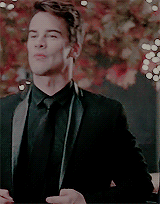
17 notes
·
View notes